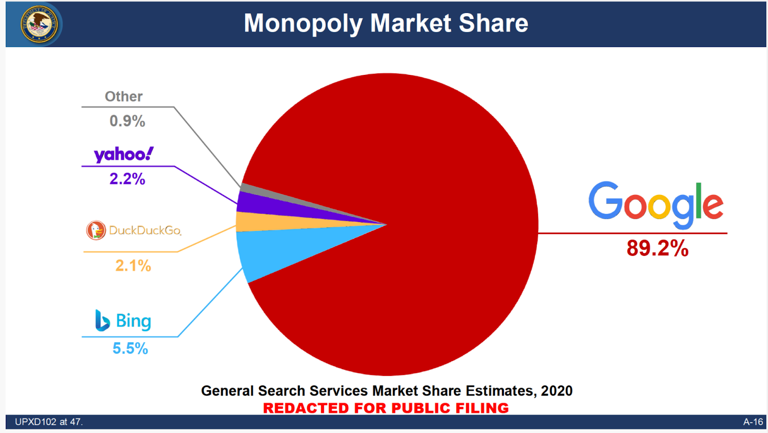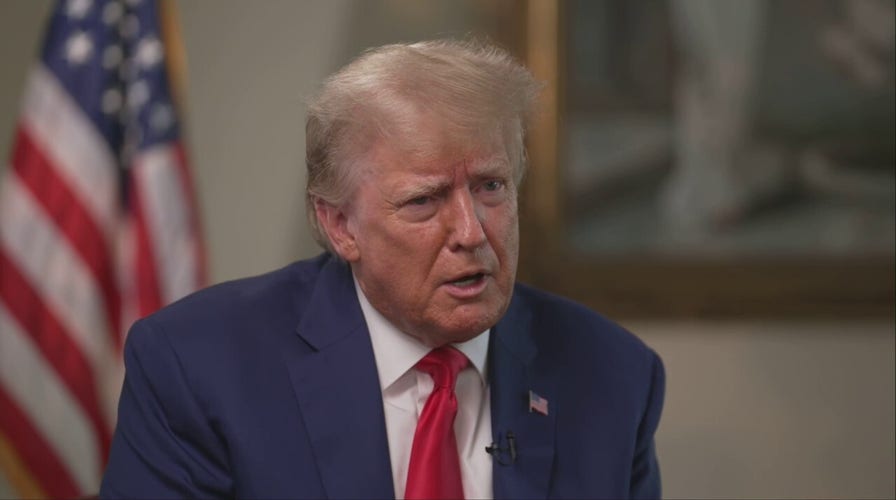Search Monopoly Case: Google And DOJ Head Back To Court

Table of Contents
The history of the DOJ's attempts to challenge Google's dominance is long and complex. Previous investigations and probes have focused on various aspects of Google's business practices, including its search algorithm, advertising practices, and Android operating system. This latest round, however, marks a significant escalation in the legal fight, bringing renewed scrutiny to Google's alleged anti-competitive behavior. The court will address key issues surrounding market definition, market power, and the anti-competitive effects of Google's actions.
The DOJ's Allegations of Anti-Competitive Behavior
The DOJ's core argument centers on the assertion that Google has abused its dominant position in the online search market through a series of anti-competitive practices. These actions, the DOJ claims, have stifled innovation and limited consumer choice. The allegations revolve around Google's systematic efforts to maintain and expand its market share, allegedly violating antitrust laws.
Examples of Google’s alleged actions include:
- Exclusive contracts with mobile phone manufacturers and carriers: The DOJ argues these agreements forced manufacturers to pre-install Google Search and Chrome, making it the default and effectively locking out competitors.
- Pre-installation of Google Search and Chrome on Android devices: This pre-installation, coupled with financial incentives, further solidified Google's dominance in mobile search.
- Payment to be the default search engine: The DOJ alleges that Google paid significant sums to be the default search engine on various browsers and devices, hindering competitors' ability to gain traction.
- Strategic acquisitions to eliminate competition: The acquisition of promising startups, the DOJ contends, was strategically used to neutralize potential competitors rather than fostering innovation.
Google's Defense Strategy
Google vehemently denies the DOJ's allegations, arguing that its market position is a direct result of superior products, innovation, and consumer preference. They maintain that the market for search and online advertising is highly competitive, with numerous players vying for users' attention.
Google's defense strategy includes:
- Emphasis on free services offered to users: Google highlights its free services, such as Search, Gmail, and Maps, as benefits for consumers, suggesting these services are not anti-competitive.
- Argument that their dominance is a result of superior products and innovation: Google points to its constant innovation and improvement of its products as the primary driver of its success.
- Claim that consumers have many choices in search engines: Google asserts that users have numerous alternatives, such as Bing, DuckDuckGo, and others, highlighting the competitive nature of the market.
- Counter-arguments to the DOJ's specific allegations focus on refuting the claim of harm to competition and the assertion that Google's actions significantly limited consumer choice.
The Role of Key Players and Witnesses
The "Search Monopoly Case" involves a significant number of key players. The DOJ's Antitrust Division will present its case, relying on the expertise of its lawyers and economists. Google's legal team, comprising top antitrust lawyers and executives, will vigorously defend the company's actions. Expert economists and market analysts from both sides will provide crucial testimony regarding market dynamics and competitive effects. The credibility and testimony of these individuals will play a vital role in shaping the court's decision.
- Key figures within the DOJ's Antitrust Division: These individuals will be crucial in presenting the government’s case and supporting their claims of anti-competitive behavior.
- Google's legal team and executives: Their role is to effectively defend Google's actions and challenge the DOJ's accusations.
- Expert economists and market analysts: These experts will provide crucial economic analysis and market assessments that help inform the court's understanding.
Potential Outcomes and Implications
The potential outcomes of the "Search Monopoly Case" are far-reaching. A ruling against Google could result in substantial fines, structural remedies like the divestiture of assets, or mandated changes to Google's business practices. These consequences would not only impact Google directly but could set a significant precedent for future antitrust cases involving dominant tech companies.
- Potential fines and penalties for Google: These could be substantial, impacting Google's profitability and market position.
- Structural remedies, such as divestiture of assets: This could involve forcing Google to spin off parts of its business, potentially impacting its market share and operations.
- Changes in Google's business practices: A ruling could necessitate changes to Google's practices relating to search results, advertising, and app store policies.
- Impact on innovation and consumer choice: The outcome could affect the pace of innovation in the tech industry and potentially limit consumer choice.
- Precedent set for future antitrust cases: The decision will have a profound impact on how antitrust law is applied to other dominant technology companies.
Public Opinion and the Media’s Role
Public opinion regarding Google's market power and the "Search Monopoly Case" is diverse. While some see Google as a beneficial innovator, others view its dominance with concern. Media coverage plays a significant role in shaping public perception, influencing how the complex legal issues are understood by the public. Social media further amplifies this, spreading information and opinions rapidly.
- Public perception of Google's market power: Public opinion is divided, reflecting a complex interplay of perceptions of innovation, convenience, and potential monopolistic practices.
- Media coverage and its impact on public opinion: The framing of the case by various media outlets influences public perception, raising awareness and shaping opinions.
- The role of social media in disseminating information about the case: Social media platforms act as rapid dissemination channels for news and opinions about the "Search Monopoly Case."
Conclusion: Search Monopoly Case – What's Next?
The "Search Monopoly Case" between Google and the DOJ is a landmark legal battle with significant implications for the future of online search and competition in the tech industry. The key arguments—the DOJ's allegations of anti-competitive practices and Google's defense of its market position—will ultimately determine the outcome. This case has the potential to reshape antitrust enforcement in the digital age, profoundly affecting innovation, consumer choice, and the overall competitive landscape. Follow the developments in this critical "Search Monopoly Case" closely. Share your thoughts and opinions – what do you think will happen next? What are the implications of this ongoing legal battle for the future of online search and competition? Let's discuss!

Featured Posts
-
 How Is A New Pope Chosen A Comprehensive Guide To Papal Conclaves
Apr 22, 2025
How Is A New Pope Chosen A Comprehensive Guide To Papal Conclaves
Apr 22, 2025 -
 Full List Famous Faces Affected By The La Palisades Fires
Apr 22, 2025
Full List Famous Faces Affected By The La Palisades Fires
Apr 22, 2025 -
 Deadline Looms Kyiv Must Respond To Trumps Ukraine Peace Initiative
Apr 22, 2025
Deadline Looms Kyiv Must Respond To Trumps Ukraine Peace Initiative
Apr 22, 2025 -
 Statement On The Passing Of Pope Francis At 88
Apr 22, 2025
Statement On The Passing Of Pope Francis At 88
Apr 22, 2025 -
 Why Investors Shouldnt Fear High Stock Market Valuations Bof As Perspective
Apr 22, 2025
Why Investors Shouldnt Fear High Stock Market Valuations Bof As Perspective
Apr 22, 2025
